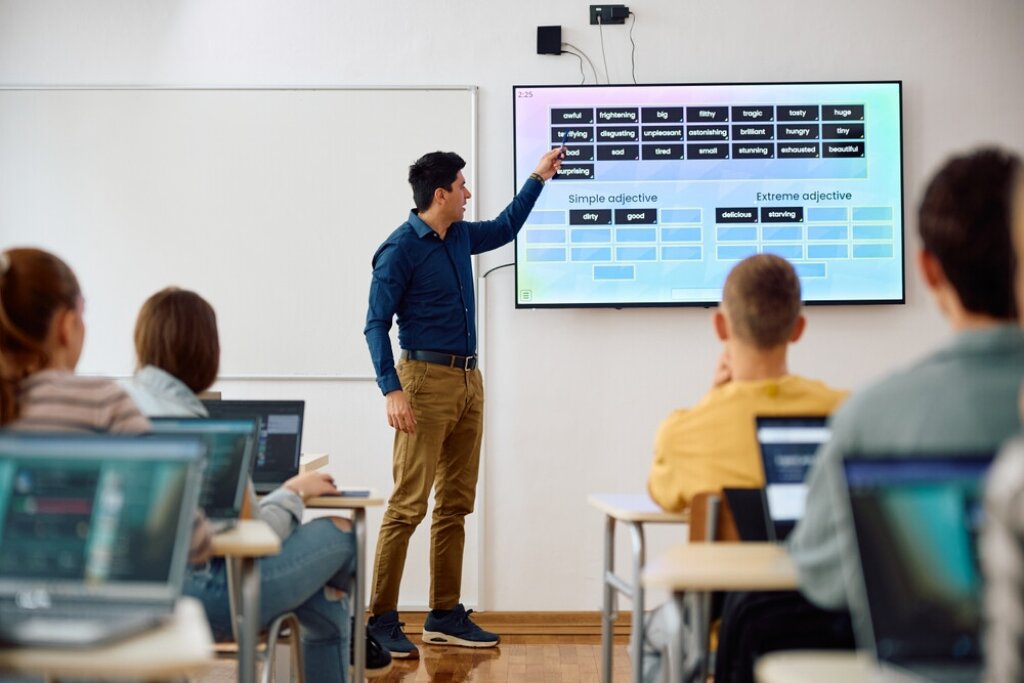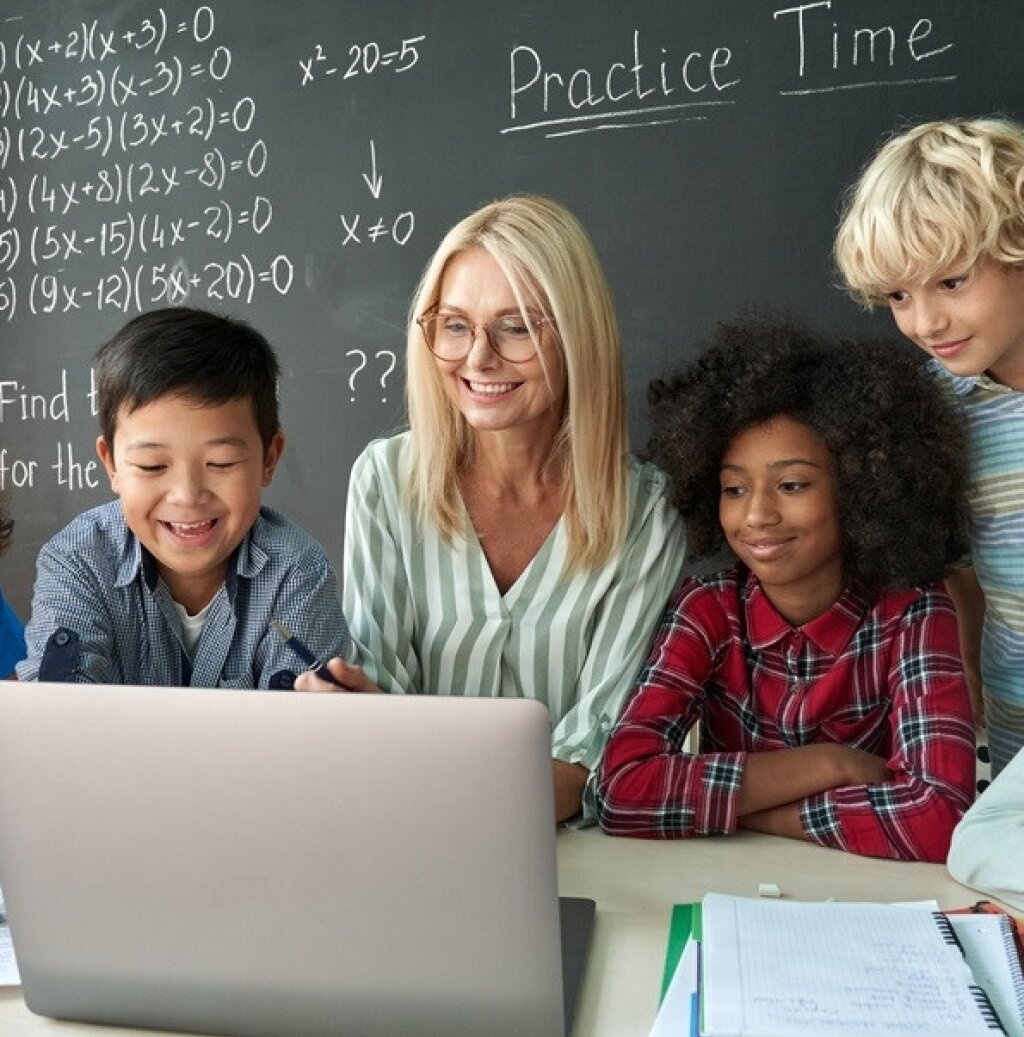Videotaping Laws in Schools: Your Rights as a Parent
In an increasingly digital world, the use of cameras and video recording in schools has become a topic of growing concern. Understanding the intricacies of videotaping laws in schools is essential for parents who want to protect their child’s privacy.
This article provides an in-depth look at your rights as a parent, explores whether teachers are allowed to take pictures or videos of students, and offers guidance on navigating the complex legal landscape of video recording in schools.
Are you looking for help ensuring your school’s video footage complies with legal and privacy regulations?
To learn more about our video redaction software, submit you email and we will be in touch.

Understanding Videotaping Laws in Schools
Schools often use video recording for a variety of purposes, including security, teaching tools or documenting events. While these uses can be beneficial, they also raise questions about privacy and consent.
Videotaping laws in schools are governed by a combination of national and local regulations, as well as school policies. Here’s what parents should know:
Data Protection Laws
In the UK, the General Data Protection Regulation (GDPR) and the Data Protection Act 2018 set strict rules on how personal data, including video recordings, should be handled. Any video recording that can identify a child is considered personal data.Consent Requirements
Schools typically need parental consent to record or use images or videos of students for non-educational purposes, such as marketing or social media.Legitimate Use
Video recordings for security purposes, such as CCTV, are generally permissible without specific parental consent, provided the school has a clear policy and complies with data protection laws.Transparency
Schools must inform parents about their video recording practices, including how recordings are stored, who has access to them and how long they are retained.
Video Recording in Schools: Common Scenarios
To understand how videotaping laws in schools apply, let’s explore some common scenarios:
CCTV in Schools
Many schools use CCTV cameras for security purposes. While this is legal, schools must:
Notify parents and students about the presence of CCTV.
Use recordings solely for security purposes.
Store footage securely and delete it within a reasonable timeframe.
Classroom Recordings
Video recording in classrooms is often used to enhance learning or provide teacher training. However, schools must ensure:
Recordings are used for legitimate educational purposes.
Parental consent is obtained when necessary.
Recordings are not shared beyond authorised individuals.
Social Media and Marketing
Posting images or videos of students on social media or using them for promotional purposes requires explicit parental consent. Schools must:
Clearly state the intended use of the images or videos.
Respect any parental objections.
Are Teachers Allowed to Take Pictures of Students?
The question of whether teachers are allowed to take pictures of students often arises. Generally, teachers can take photos or videos in the following contexts:
Educational Activities
Teachers may take pictures or videos during lessons or school events for educational purposes. These images should be used internally unless parents have given explicit consent for wider use.School Events
Photos or videos taken during school plays, sports days or other events may be shared with parents through secure platforms, provided the school follows its privacy policies.Parental Consent
Schools typically require parental consent at the beginning of the academic year for photographing or recording students. Parents can opt out if they have concerns about their child’s privacy.

Protecting Your Child’s Privacy
As a parent, you play a crucial role in safeguarding your child’s privacy. Here’s how you can ensure your rights are respected:
Review School Policies
Ask for a copy of the school’s privacy and data protection policies. Ensure they align with your expectations regarding video recording and image use.Understand Consent Forms
Read consent forms carefully before signing. If you’re uncomfortable with any aspect, discuss your concerns with the school.Communicate Your Preferences
Notify the school if you do not want your child’s images or videos used for specific purposes. Schools are legally obligated to respect your preferences.Report Concerns
If you believe your child’s privacy has been violated, raise the issue with the school’s data protection officer. You can also file a complaint with the Information Commissioner’s Office (ICO) if necessary.
Legal Protections for Students
Several legal protections are in place to safeguard students’ privacy in the UK:
GDPR and Data Protection Act 2018
These laws govern the collection, storage and use of personal data, including images and videos.Human Rights Act 1998
Article 8 protects the right to privacy, which extends to students in schools.Education Acts
Schools must provide a safe and respectful environment, including protecting students’ data.
How to Request Video Footage As a Parent
To request video footage from your child’s school, follow these steps:
Submit a Formal Request
Write to the school’s data protection officer or administrator, stating your request clearly.Provide Specific Details
Include the date, time and location of the incident or footage you want. Explain your relationship to the child and the reason for your request.Verify Identity
Be prepared to provide identification to confirm you are authorised to access the footage. Schools usually have up to one month to respond under data protection laws. However, response times may vary depending on the complexity of the request. If delays occur, follow up politely and consider seeking further advice if needed.
What to do if Your Request is Denied
If your request for video footage is denied, ask for a written explanation citing legal reasons. Address broader concerns about surveillance by discussing them with the school administration or governing body. If unresolved, seek advice from professionals like legal experts or the Information Commissioner’s Office (ICO) to protect your child’s rights.
Areas Where Cameras Are Not Allowed
In schools, while cameras are often necessary for safety and security, there are strict rules about where they cannot be installed. Protecting student privacy in specific areas is a legal and ethical obligation.
Places Where Cameras Should Not Be
Certain areas in schools are considered private spaces where students expect absolute privacy. These include:
Bathrooms
Students use these areas for personal hygiene and any form of surveillance is an extreme violation of privacy.Locker Rooms
These spaces are for changing clothes and installing cameras here infringes on personal boundaries and trust.Private Offices or Staff Rooms:
While primarily for adults, these areas also require confidentiality and privacy.
Importance of Maintaining Privacy in Sensitive Areas
Privacy in sensitive spaces is crucial for several reasons, which include student trust, legal compliance and emotional safety, that is, knowing that private areas are safe from surveillance ensures students feel secure and respected.
What to Do If You Discover Cameras in Restricted Areas
If you find cameras in areas where they are not allowed, it’s essential to act promptly and report the matter to the school administration. Inform the school principal or administration immediately, providing clear details about the camera’s location.
Escalate the concern if the school does not address the issue, report it to the governing body or the school district.
Contact regulatory authorities and file a complaint with the Information Commissioner’s Office (ICO) in the UK, as they oversee compliance with privacy laws.
Seek legal advice and, If necessary, consult a specialist legal professional to ensure the matter is handled appropriately and that the school rectifies the breach.
Ensuring cameras are not placed in restricted areas is a critical aspect of protecting students’ dignity and privacy in educational settings.
Schools must be vigilant in upholding these standards, and parents have the right to advocate for their children’s safety and respect.
Practical Tips for Parents
To navigate the complexities of videotaping laws in schools, consider the following tips:
Attend Parent Meetings
Participate in discussions about the school’s video recording practices.Educate Your Child
Teach your child to recognise situations where they should report concerns about being recorded.Stay Informed
Keep up-to-date with changes in data protection laws and school policies.
Conclusion: Video use in Schools
Videotaping laws in schools are designed to balance the benefits of video recording with the need to protect students’ privacy.
As a parent, understanding your rights empowers you to make informed decisions and advocate for your child’s well-being.
By staying engaged and proactive, you can ensure that your child’s educational environment remains both safe and respectful of their privacy.
FAQs About Video Footage in Schools
Q. Do I need to sign a consent form for my child to be recorded?
A. Consent is generally required for non-security purposes, such as promotional materials or social media. However, consent is not typically needed for security-related recordings, such as CCTV, as these fall under legitimate interests.
Q. When is consent required and when is it not?
A. Consent is required for recordings used in publications, marketing, or social media. It is not required for security, educational activities or training purposes, provided the school adheres to data protection laws and policies.
Q. Can I see videos of other students?
A. Accessing footage of other students is restricted to protect their privacy. Schools must redact or anonymise identifiable details of other students before sharing footage with you.
Q. What are my access rights to video footage involving multiple students?
A. You have the right to request footage involving your child. However, the school must balance your request with privacy laws, often requiring video redaction before providing access.
Q. How long do schools keep video recordings?
A. The retention period for video recordings varies but is typically between 30 and 90 days for CCTV footage. Schools must define retention periods in their data protection policies.
Q. What happens to video footage after it is reviewed?
A. After review, footage should be securely stored or deleted in accordance with the school’s data protection and retention policies. Sensitive footage must not be retained longer than necessary.
Q. How should a school store video recordings after use?
A. Schools must store video recordings securely, using encryption or restricted access systems. They should also audit their storage practices regularly to ensure compliance with data protection laws and prevent unauthorised access.
How is Video Redaction Useful in Schools?
Video redaction in schools ensures student privacy by blurring faces or sensitive details in surveillance footage. Redaction is crucial for sharing footage during investigations or with parents while complying with privacy laws. Redaction protects students’ identities and prevents misuse of their images.
By balancing transparency and confidentiality, video redaction fosters trust, improves safety and enables schools to address incidents responsibly without compromising the rights or privacy of any individual involved.
Facit’s Identity Cloak is a fast, reliable redaction solution that is deployed in schools to protect the rights and privacy of schools, parents and students.
Useful Resources
Find advice on data privacy in schools and contact details on the Information Commissioner’s Office website.
To learn more about regulations governing video use in US schools, check out FERPA regulations on the US DoE website.



